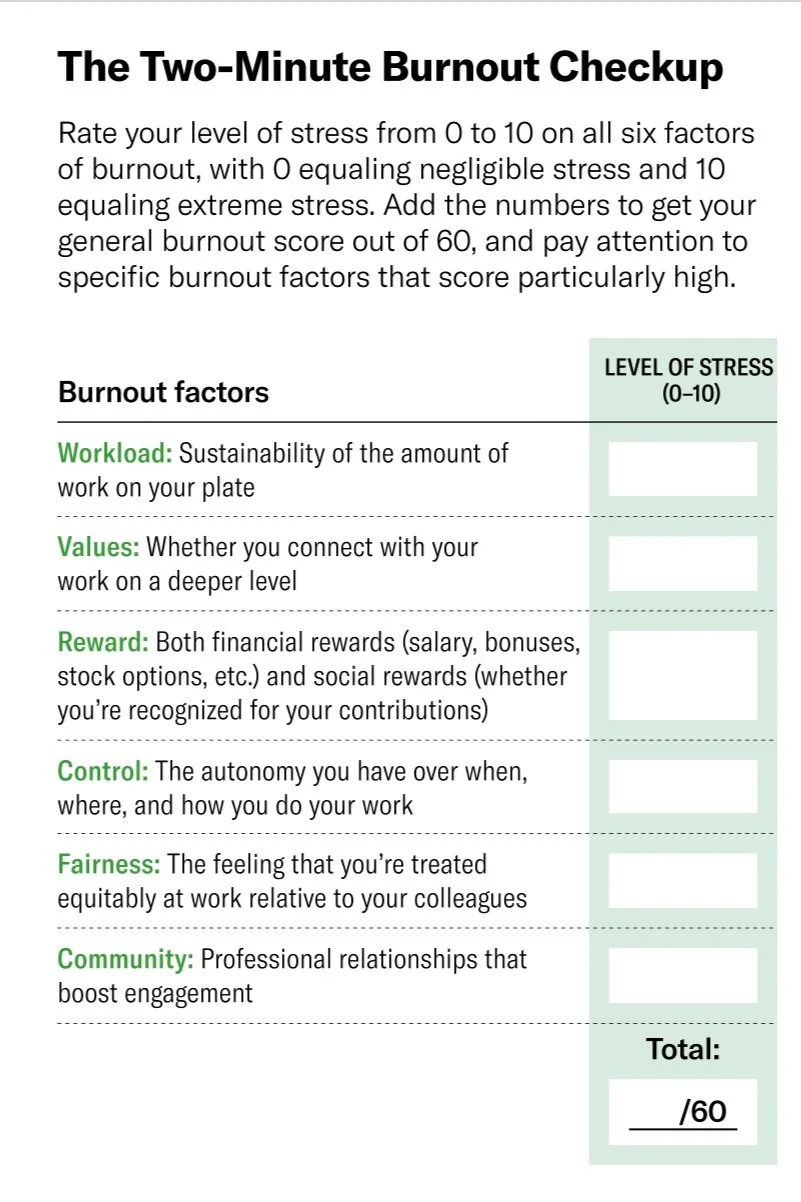5 Subtle Precursors To Burnout
Unsplash: Tangerine Newt
Burnout is devastating.
It wears you out. It changes you.
Like so many others, I used to think it was the same as being exhausted. That it was a phase that would eventually pass once I finished the big project, hired the right person, went on vacation, or took a couple days off.
It didn't.
No matter how much I tried to rest, I still felt frustrated, irritated, and tired. I didn't know how to shake it.
And everything annoyed me -- being at work, at home, at the gym. I was getting on my own nerves.
So I started looking for those answers on how to feel vibrant again--how to get to the other side -- and stay there.
I was on a mission--and started reading anything I could get my hands on, studying human behavior, and speaking with medical experts.
What I learned was that exhaustion is definitely part feeling burned out, but there's a lot more to it.
Taking a vacation or resting for a brief period won't overcome the feelings of burnout in the long-term. You need to change your habits and shift your mindset for lasting change.
If you find yourself in a similar situation, let me share a few things I wish I had known earlier.
First, I'll outline 5 subtle precursors of burnout. Second, I'll share a two-minute burnout checkup by Chris Bailey (Harvard Business Review) to help you monitor your mental well-being and prevent getting burned out again.
5 Subtle Precursors To Burnout
Burnout in life happens when there is a lack of balance between the things you have to do to survive and the things you need to live a good life.
"Burnout is nature's way of telling you, you've been going through the motions your soul has departed." - Sam Keen
Being burned out can make you feel emotionally drained and uninterested in keeping up with life's demands.
One of the biggest misconceptions about burnout is that it’s the same as feeling exhausted. While those feelings are part of it, there are other signs to be aware of:
Overwork: work is a big part of life, and has a big impact on your state of mind. Too much work leaves little space for anything else, and not enough work can lead to dissatisfaction and insecurity.
No one to talk to: extended periods of time without the ability to share your feeling and thoughts could lead to a toxic buildup of emotions.
Low motivation and high irritability: feeling ineffective at work and losing daily motivation in simple tasks in life
Boredom: it's not only about how much you're doing as much as it is to what you're doing.
No clear purpose: going through the motions without a deeper purpose leads to negativity on a physical, emotional, and mental level
Here's the thing:
To understand what’s causing burnout, you have to pinpoint the source.
The biggest culprit? An overwhelming amount of chronic stress.
Chronic stress never lets up, and is attributable to the following factors: how sustainable the amount of work on your plate is, how much your life aligns with what you value (gives meaning), being recognized for your efforts, control and autonomy over your time and energy, and the strength of your relationships.
Ongoing conflicts in these areas compound and count towards your level of chronic stress.
And the more chronic stress you face, the closer you get to burning out.
The Two-Minute Burnout Checkup
I came across Chris Bailey's Two-Minute Burnout Checkup while doing research on how gauge how close I was to burning out.
This simple activity will give you a rough and subjective estimate of how you’re feeling at a point in time.
For each of the six categories, rate your amount of stress, on a scale of 0 to 10 (0 being negligible, 10 being extreme).
For example, if you’re finding it tough to connect with colleagues after a long period of working from home, you might score community an 8. Conversely, you might rank workload a 2 if you have a good amount to do but find the number of tasks manageable.
Your score — the sum of all the dimensions out of 60 — will show how well you’re doing in the moment. While the total number of points is important, what’s more useful is your score in each of the six categories. If you’re anything like me, this activity will probably show that you’re healthy in some dimensions and unhealthy in others.
Chris Bailey, HBR
This simple assessment allows you to track how well you're doing across each area, and create an action plan moving forward.
Add it to your toolbox of mental health strategies!
About Melina
Melina Panetta works with Founders and CEO’s to transform burnout into balance through Peak Performance coaching.




